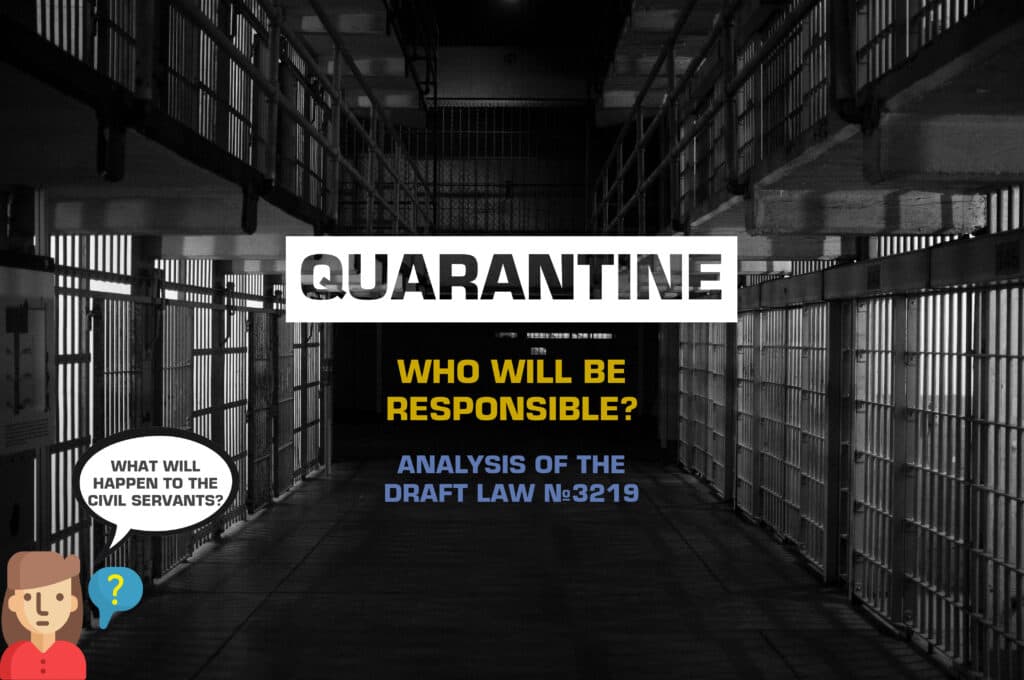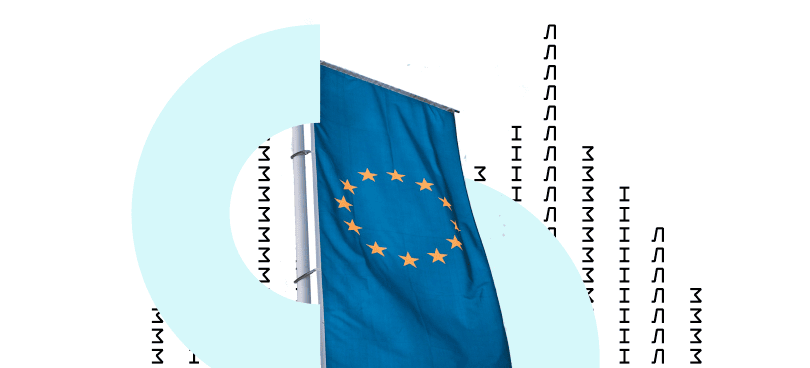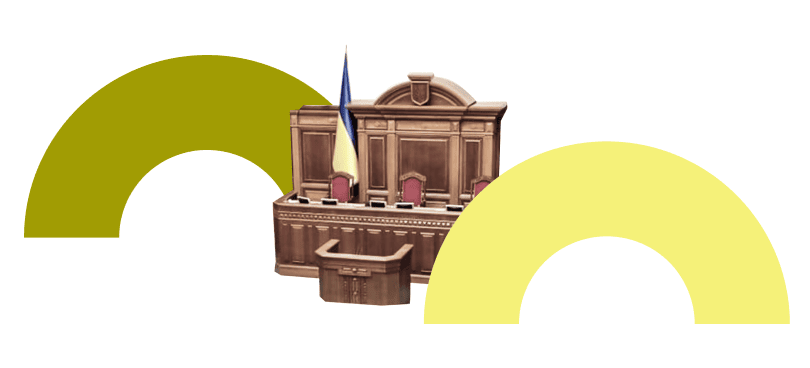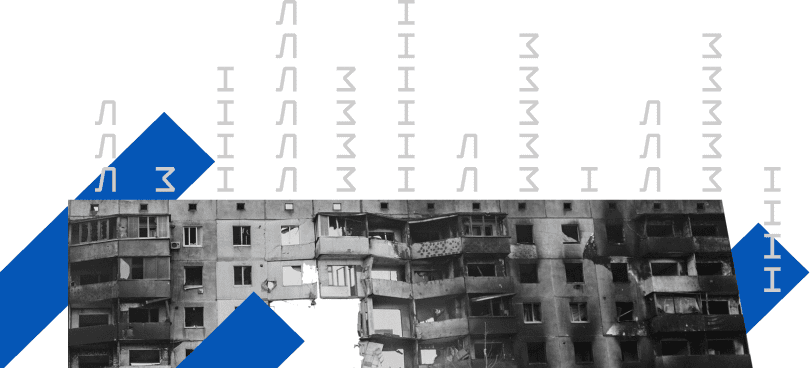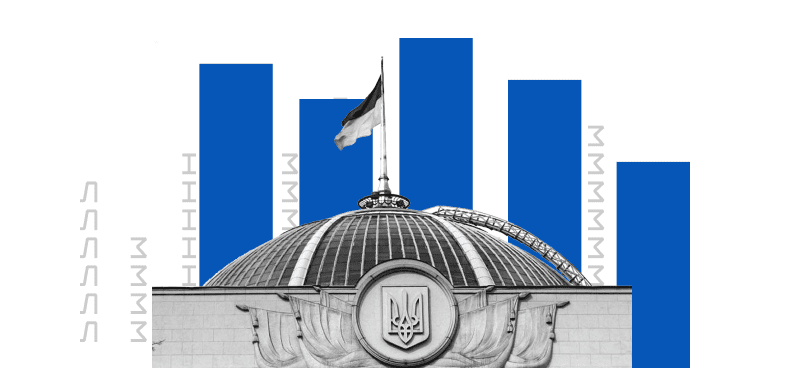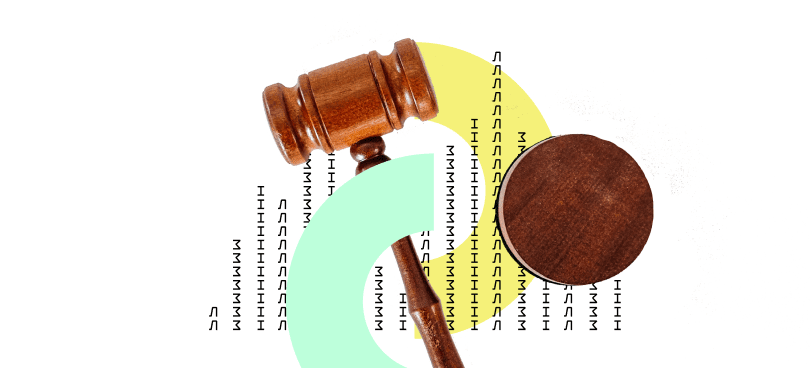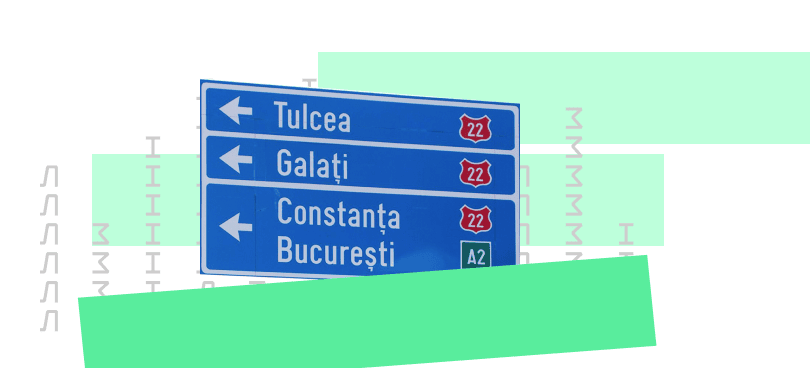First of all, it is necessary to note the positive component of the bill: the introduction of a simplified system (without tenders). At the same time, there are some nuances in the text of the draft law.
The bill introduces administrative liability for violating “human quarantine, sanitary and hygienic and sanitary and anti-epidemic rules and regulations”. In the explanatory note, the authors noted that this rule is aimed at the possibility of prosecution for leaving the place of observation (quarantine) by a person who may be infected with coronavirus COVID-19. However, the norm itself is formulated much more broadly in content, as it covers all sanitary and hygienic and sanitary and anti-epidemic rules and regulations, as well as refers to an infinite list of legislative regulations. This wording violates the principle of certainty, as it remains unclear what actions will be considered an administrative offense.
Moreover, the wording “quarantine of people” is incorrect because any legal action does not operate such a concept. The Law “On Protection of the Population from Infectious Diseases” distinguishes between the concepts of “observation” and “quarantine area”. Thus, “persons who have expressed a desire to leave the quarantine area before its abolition must be in the observatory under medical supervision during the incubation period of the disease and undergo the necessary examinations. After the expiration of the period of stay in the observatory, considering the results of medical supervision and tests, they are issued a certificate entitling them to leave the quarantined territory”. Therefore, it is not entirely clear what the responsibility is for leaving the observation or quarantine territory without permission.
The issue of determining the quarantined territory also remains open. According to the resolution of the Cabinet of Ministers, quarantine is introduced throughout Ukraine. But in the conditions of virus spread, it is logical to divide the quarantined territory into a city, village, district, etc. The possibility of “closing” cities for entry and exit is being discussed by mayors, and this needs further clarification by the Ministry of Health. After all, under the conditions of restriction of movement on the territory of Ukraine, we can talk about the limitation of constitutional rights, which in turn requires other legal regulations, namely – the introduction of a state of emergency.
Undoubtedly, the introduction of responsibility is necessary. However, there is a question of the responsibility of persons diagnosed with COVID-19 and, due to the mild course of the disease, medical instruction was given to isolating themselves. If such persons violate the conditions of self-isolation and endangerment of other people, it is necessary to develop a mechanism of responsibility (such a situation was, for example, in Japan). Besides, it is appropriate to provide tools for responding to a person’s refusal to take the test (occasionally, we can mention the case in South Korea).
The bill also proposes to significantly increase the responsibility for violating the rules and regulations established to prevent epidemics and other infectious diseases. And although only government officials and business officials can be prosecuted, the real deadline for violating rules and regulations is worrying about the increase in liability. In a pandemic, it seems that such an increase in responsibility is appropriate, but we must not forget that sooner or later, we will return to normal, and this rule will remain the same. Under normal circumstances, this will mean pressure on businesses due to inspections and a corresponding increase in corruption risks.
The following norms proposed by the Project also cause a lot of concerns:
- Addition of Article 84 of the Labor Code of Ukraine and Article 26 of the Law of Ukraine “On Holidays” with a new part: In case the Cabinet of Ministers of Ukraine establishes quarantine, in accordance with the Law of Ukraine “On Protection of Infectious Diseases”, the period of unpaid leave is not is included in the general term established by the current parts of the same articles – 15 days.
- Establishment in the final provisions of the Project that for the period of quarantine or restrictive measures the employer may instruct the employee, including a civil servant, a local government employee, to perform work specified in the employment contract at home for a certain period, as well as provide the employee, including the state employee, employee of the local government, with his/her consent leave.
Taken together, these two rules (without detailing the type of leave in the final provisions) can lead to a situation of mass sending of employees (including civil servants and local government employees) “with consent” to unpaid leave for a sufficiently long time. First, such leave will not be limited to 15 days and will not be taken into account at all when calculating the days of unpaid leave currently provided by law. And, secondly, according to Article 29 of the Law “On Protection of the Population from Infectious Diseases, “a quarantine is established for the period necessary to eliminate an epidemic or outbreak of a particularly dangerous infectious disease“. Currently, the Cabinet of Ministers has established quarantine throughout Ukraine until April 3, 2020. However, given global trends, this period may be extended. In the event of a prolonged pandemic and the need to continue quarantine for a long time, the above rules can lead to a socio-economic crisis, and in the case of mass unpaid leave of government and local government employees – to the collapse of state institutions.
To minimize the socio-economic consequences of the coronavirus pandemic and the resulting economic recession, it is necessary to consider additional or alternative options to stimulate social exclusion of workers while ensuring the constitutionally guaranteed right “to a sufficient standard of living for themselves and their families, including adequate food, clothing, and housing“.
Also, Project №3219 in the final provisions proposes to suspend the application for administrative and other services and the deadlines for the provision of these services, as defined by law, from the date of quarantine announcement. “From the date of termination of quarantine, the duration of these terms shall continue, taking into account the time that has elapsed before its suspension”. Such a decision seems quite logical given the need to limit the contacts of citizens in places of administrative services, as well as the possibility of mass “leave” of employees of public authorities and local governments. However, the question remains whether, by the same logic, the deadlines for preparing responses to a request for public information during the quarantine period should be suspended. After all, this is not an administrative service. For non-provision and untimely provision of information, public information managers are responsible in accordance with the Law “On Access to Public Information”. Combined with previous innovations of the Project (regarding unpaid leave), this situation further threatens the stable operation of state institutions.

